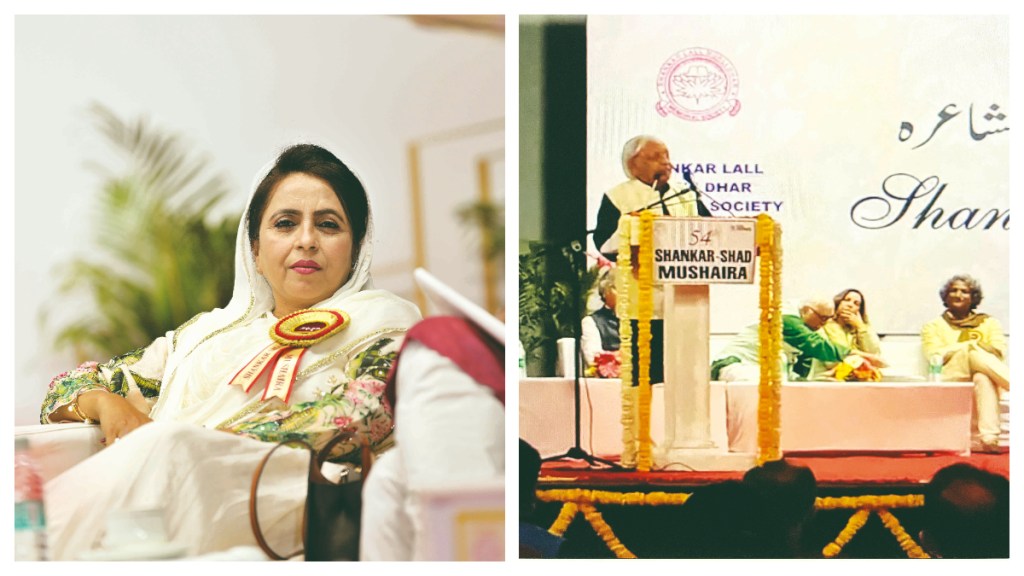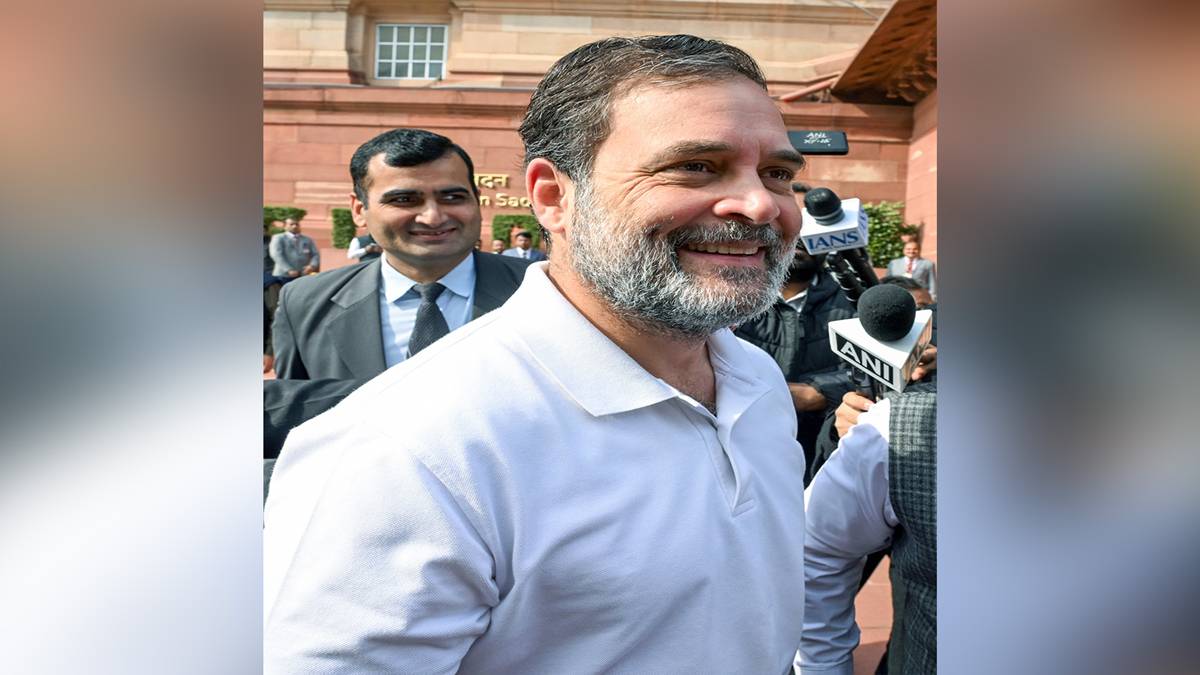The audience cheered and clapped entreating the poets for an encore. At the 56th edition of Bazm-e-Mushaira in the national capital last month, the energy and the evocation of emotions did well to hide the fact that Urdu poetry was facing challenging times.
Thousands of people were in attendance at Bazm-e-Mushaira organised every year by the Shankar Lall Murli Dhar Memorial Society. First organised in 1954, the mushaira has drawn legendary Urdu poets, among them Faiz Ahmed Faiz, Kaifi Azmi, Ali Sardar Jafri and Jigar Moradabadi. Delhi’s longest-running mushaira, it was attended this year by eminent poets like Javed Akhtar, Waseem Barelvi and Azhar Iqbal. Despite the huge attendance and inspiring presence of acclaimed poets, there was wider acknowledgement that the Urdu language and Urdu poetry were facing hurdles.
“The Bazm-e-Mushaira is a noble effort to promote Urdu poetry,” says Delhi-based Urdu poet Gauhar Raza. “But the Urdu language and Urdu poetry in India are in a bad state. There is hardly any support for either mushaira or Urdu poets these days,” he laments. Raza, a former scientist at the Academy of Scientific and Innovative Research, points to the slump in publishing of Urdu poetry witnessed in the past few decades. “The government gives funds for promotion of languages like Urdu, but most of the funds go to recycling of old books published decades ago,” explains Raza.
One of the state-run institutions entrusted with the promotion of Urdu is the National Council for Promotion of Urdu Language, an autonomous body under the Union ministry of education. There are also Urdu academies run by state governments mandated to promote Urdu. There are a few independent Urdu publishing houses, but all of them are facing a bleak future with survival aided by rent from properties they own.
Hope and heritage
“We survive on rent we receive from our property in Delhi,” says Urdu writer Ather Farouqui, the general secretary of Anjuman Taraqqi Urdu, an independent publishing house founded by educationist Syed Ahmad Khan in 1886. “We publish 50-60 titles every year, but they are all highly academic,” adds Farouqui. Among recent publications by Anjuman Taraqqi Urdu is Ret Samadhi, the Urdu translation of Geetanjali Shree’s Hindi novel which won the International Booker Prize in 2022. “We also publish the only Urdu literary journal in the country, called Urdu Adab,” he says.
In the backdrop of the struggle of Urdu language and publishing are complex issues like the growing number of publications of Urdu poetry, surprisingly in Hindi script. “It’s a sensitive issue. Why should we change the script of a language?” asks Farouqui. “Urdu script is used less and less today. It is in a crisis,” echoes popular Urdu poet Azhar Iqbal, who lives in Meerut, Uttar Pradesh. “If you don’t use a script, the identity of the language is lost,” he adds. “There are more people today speaking Urdu than before. But they are learning Urdu by reading its literature in Hindi.”
One of the reasons for the popularity of Urdu today is attributed to social media. The surge in the popularity of the language is led, interestingly, by the new generation that has embraced social media in everyday life. “The new generation uses Urdu poetry for conversation in social media. There is nothing better than Urdu poetry to talk about life, love and emotions. You can say all of that in a single couplet of Urdu poetry,” explains Iqbal, one of the participants at Bazm-e-Mushaira in Delhi last month.
Many Urdu scholars and poets say that while Urdu has grown as a spoken language, its script has suffered in the past two decades. “Before the 1990s, Urdu was a dying language. But the situation was reversed after the arrival of social media,” says Iqbal. “Today Urdu poets represent the diversity of India— young poets without the distinction of class, caste or religion,” he adds. Popular Urdu poets today include Berlin-based Bipal Kumar, who was born in Shri Ganganagar, Rajasthan, Abhishek Shukla, an Urdu poet from Ghazipur, Uttar Pradesh, who published his first Urdu poetry Harf-e-Awara in 2020, Lucknow-based Harshit Mishra, Pallava Mishra, who was born in Saharsa district of Bihar, and Balmohan Pandey, who was born in Rohtas, Bihar.
Unique Indianness
First spoken in Delhi and surrounding areas of Meerut, Ghaziabad, Baghpat and Muzaffarnagar in Uttar Pradesh in the 13th century when Indo-Persian poet Amir Khusrau began using a mix of Persian, Sanskrit and Hindi at the beckoning of his mother, Urdu today owns a mixed bag of contemporary history and faces an uncertain future. “Amir Khusrau’s mother was a Persian poet who asked her son to use the simple local words in his poetry,” says Iqbal. “People instantly liked the new language and poetry. Urdu was born from simplicity. Its Indianness is unique.”
There are exceptions, though. “I write in Urdu,” beams Bengaluru-based Urdu poet Sunil Panwar, who is giving finishing touches to his first collection of Urdu poetry. “Ammi jis sheeshe me kanghi karti thi/Us sheeshe me ab bhi bachcha lagta hun (The mirror mother used to comb looking at, I still look like a child in that mirror),” reads one of his recent verses in Urdu. “Raat bhar buniyad ghar ki siskiyaan leti rahi/Koi to roya hai is deewar se lag kar bahut (Whole night the foundation of the house was sobbing,/Someone has wept bitterly leaning on this wall),” reads another. “It is encouraging that today’s youth find Urdu poetry appealing,” adds Panwar, who credits cultural institutions like Rekhta Foundation, which promotes Urdu language, for the interest of the youth in the language and its poetry. “Khilaf jung hein jo jane kab se jari hein/Aur inka jurm hein azadi-e-vatan ka junoon (This war has continued for long/And their crime is intense desire for freedom),” writes Raza in his new poem on Palestine.
Faizal Khan is a freelancer








